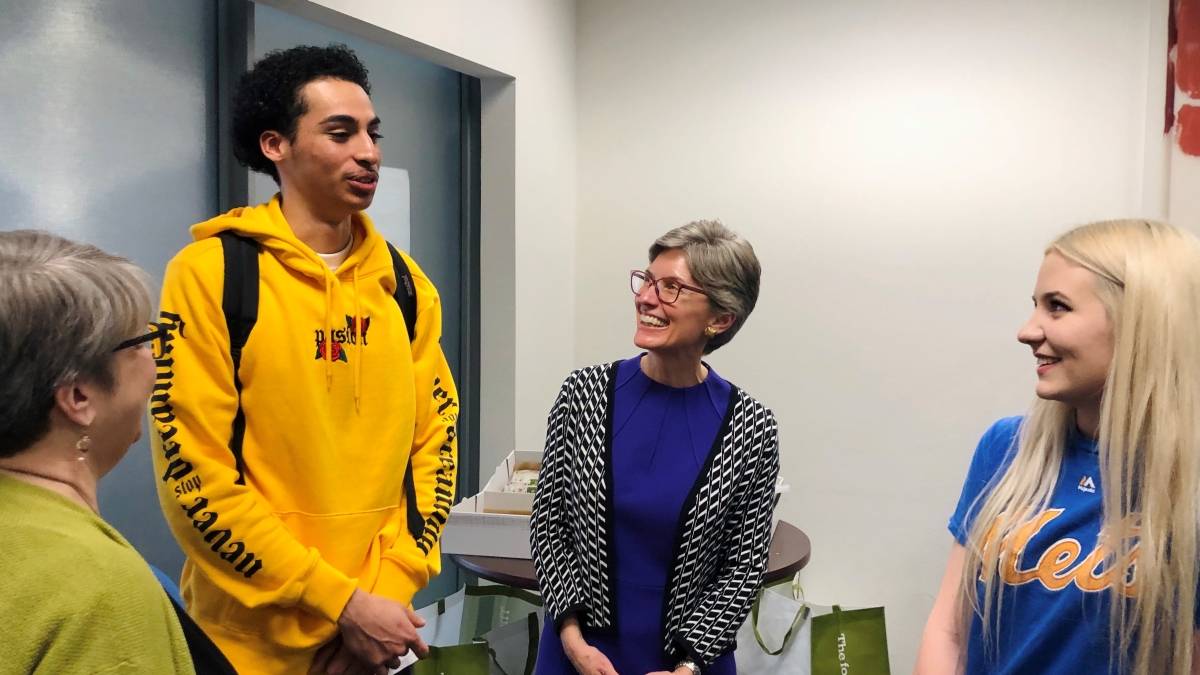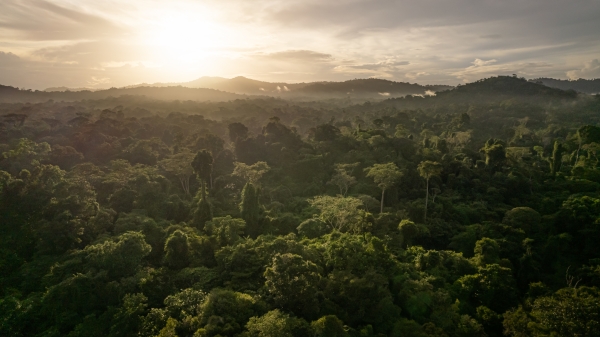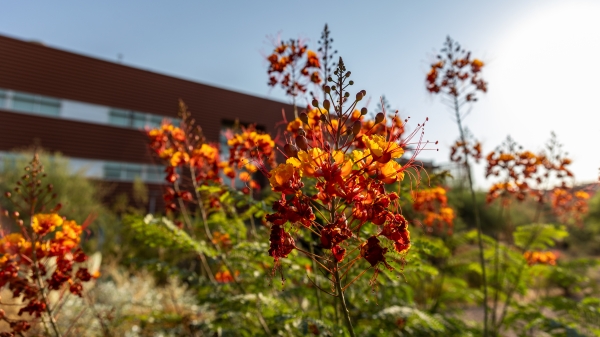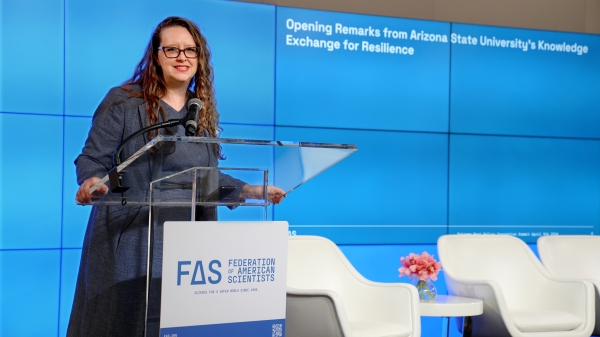US census 2020 geography leaders meet with ASU students

Deirdre Dalpiaz Bishop, chief of the geography division at the U.S. Census Bureau (center), speaks to students in the School of Geographical Sciences and Urban Planning.
Students in the School of Geographical Sciences and Urban Planning recently had the opportunity to meet one-on-one with the lead geographer of the U.S. census and others to learn about how geographic information systems (GIS) and maps play a key role in the decennial U.S. census process.
“We’re very proud of the design of the 2020 U.S. census, and I would like the students at ASU to know that we’ve incorporated the use of geography and geographic information systems throughout the design of the census,” said Deirdre Dalpiaz Bishop, chief of the geography division at the U.S. Census Bureau. “Whether it’s the building of our address list or motivating people to self-respond, even knocking on the doors if people don’t respond, we’re using GIS throughout the process.”
Bishop, accompanied by colleagues Trudy Suchan and Vicki McIntire, talked to small circles of students, faculty and staff about how GIS and technology have contributed to significant cost savings and increased operational efficiency in the U.S. census process. In addition, they answered questions on topics ranging from employment opportunities with the census to technological advancements the census is implementing in 2020 to how the census works and why it is important.
“I was 11 when the last census was going on, and I don’t really remember anything about it,” said Taylor Berkabile, a geography junior. “It’s interesting to get to talk to people who actually work with the census and get more information about it.
“Being here helps me see what my options are graduating with a geography degree. I’m interested in learning about her (Bishop’s) experiences working in that field, as an option of something I can do.”
Urban planning junior Nathan Warren, who is taking a class on population geography, said the census event caught his interest because it was an opportunity to learn about a process he wasn’t previously familiar with.
“I’m learning about urban planning, the census, how a lot of data is used in predictions, and I’m growing my understanding of the geography piece of it,” Warren said. “Now, putting all of these things together opens up a lot of critical thinking for me. It’s very interesting how it all connects together.”
The sky’s the limit
Bishop wants students to know that as technology evolves and the use of GIS and geography systems become more integrated into daily life, career opportunities will continue to grow.
“When I first started working, there weren’t many options. You could work for the federal government or you could work for the planning board that uses GIS, but today, the sky’s the limit,” Bishop said. “Don’t limit yourself; look at all opportunities — and I would first suggest pursuing informational interviews with experts in the industry to learn more about what they do, and then really to pursue as many different opportunities as possible to find the right fit.
“You can work for the government, you can work for a local organization, a nonprofit organization, a business — everyone is using GIS and everyone understands the power of the technology.”
When asked if she had anything else she wanted to tell students, Bishop said with a smile, “I would like everyone to self-respond to the census in March and April 2020.”
A simple reminder that every person counts.
More Environment and sustainability

Study: Conservation actions highly effective at halting, reversing biodiversity loss
A new study, led and contributed to by Arizona State University faculty, provides the strongest evidence to date that not only is…

Barrett Honors College to host nature walks for science, relaxation
Barrett, The Honors College at Arizona State University is gearing up to participate in the City Nature Challenge (CNC) for the…

Arizona adapting to heat crisis with initiatives featured in ASU report
Arizona State University's Knowledge Exchange for Resilience, also known as KER, released its Recommendations Report on Extreme…